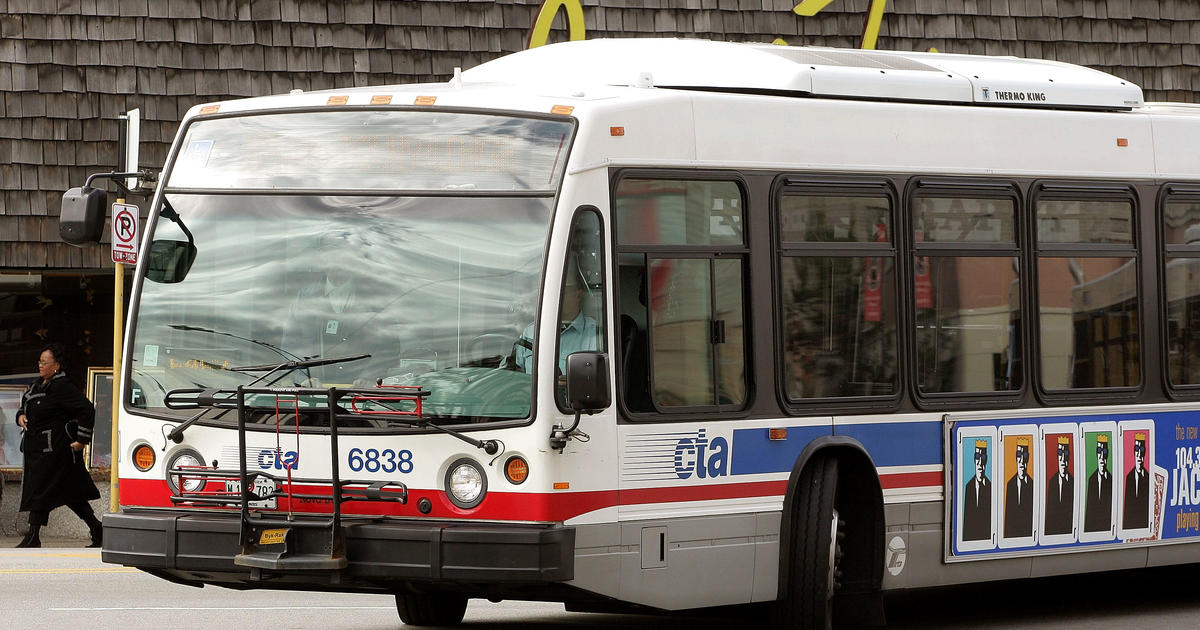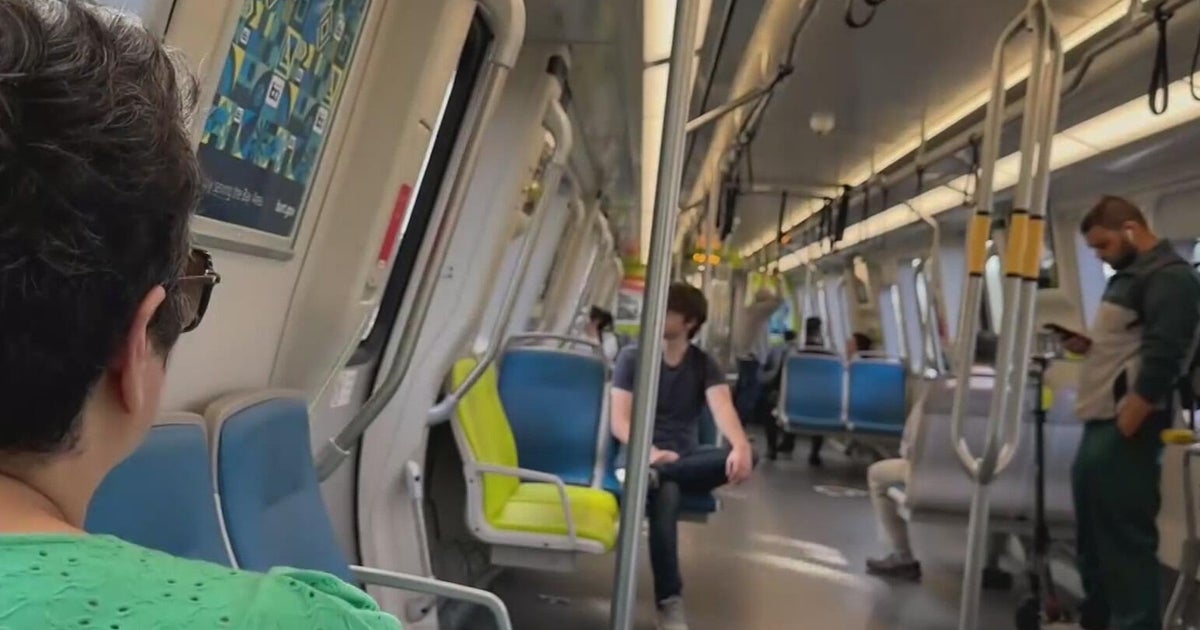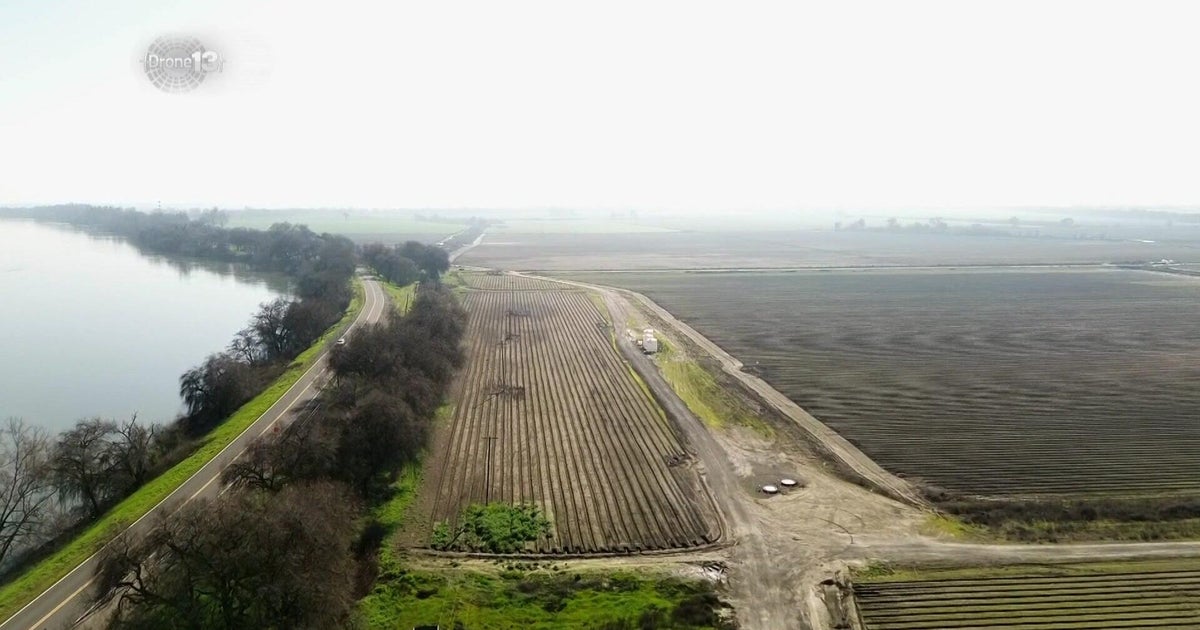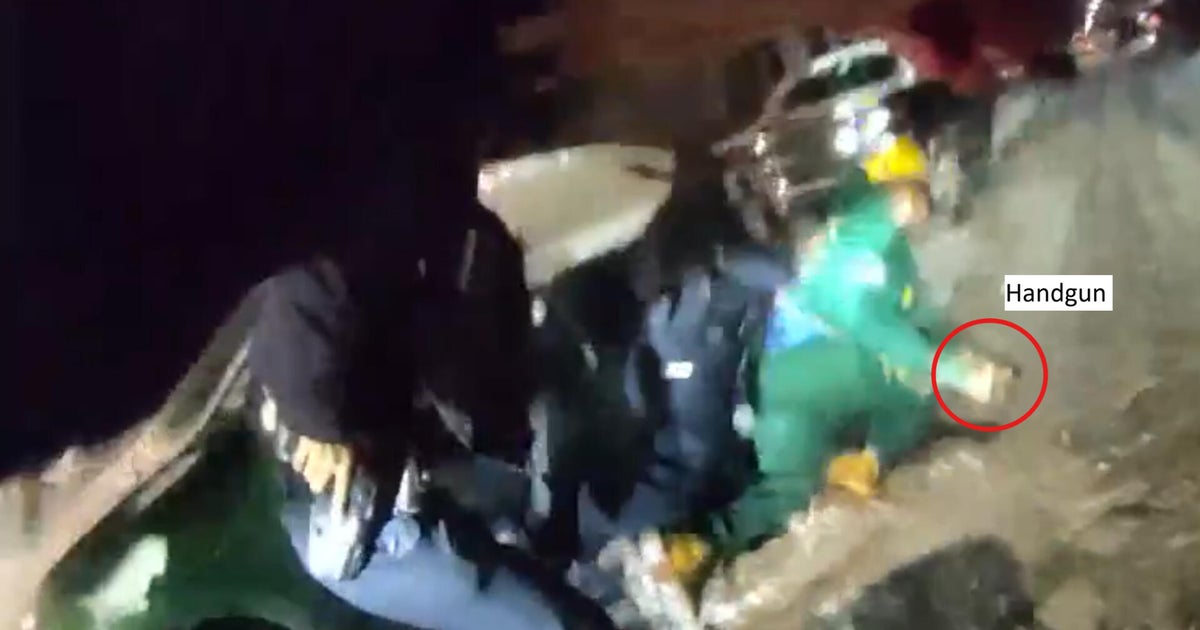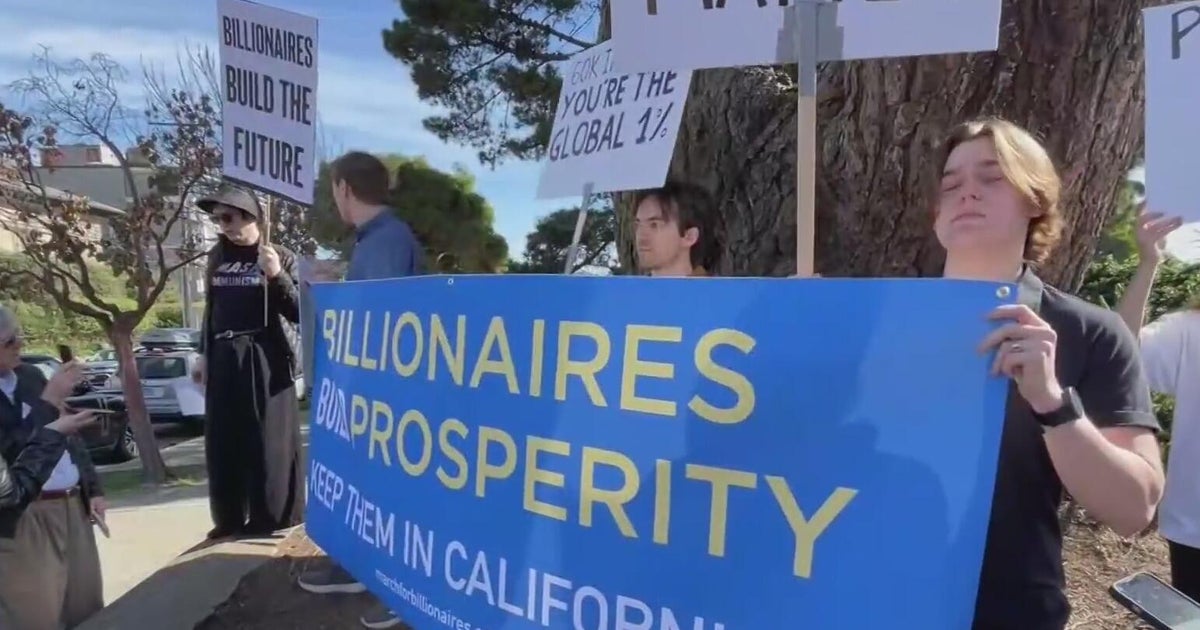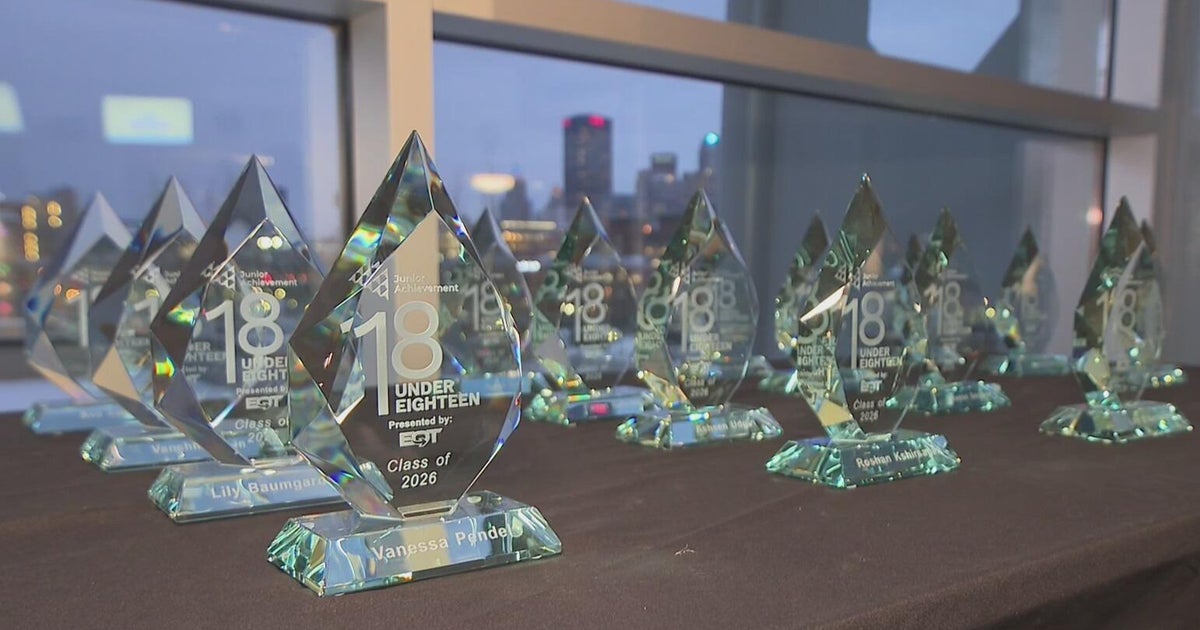Schumer Proposes Plan For Hudson River Rail Tunnels
NEW YORK (CBSNewYork/AP) -- After a warning from Amtrak that NJ TRANSIT delays may be the new norm, Sen. Charles Schumer is proposing the formation of a nonprofit development corporation to plan and finance the construction of new rail tunnels from New Jersey to New York City.
With the combination of old infrastructure and damage from superstorm Sandy, Schumer said we are approaching what he calls a "regional transportation Armageddon," CBS2's Diane Macedo reported.
Schumer said Tuesday that none of the existing transportation entities operating in the region have the wherewithal to pull off the Gateway project by themselves.
"Amtrak can't access federal mass transit funding, the Port Authority and regional agencies can't access federal railroad dollars the way Amtrak can," he said. "We only get Gateway done by adding up several pieces of financing with an eye toward getting the maximum amount possible from the federal government."
The goal is to expand train capacity into New York from New Jersey and the rest of the East Coast.
"No doubt, it will take a gargantuan effort," Schumer said. "Gateway is the single biggest infrastructure project in the entire country. It incorporates several important upgrades we need to make on the Northeast Corridor in the New York, New Jersey area. But far and away, the most important part of the Gateway program is building two tunnels under the Hudson."
Schumer said the entire U.S. rail network between Washington and Boston could be disrupted and disabled if the project isn't built.
Schumer Proposes Plan For Hudson River Rail Tunnels
But the project comes with a hefty price tag.
"The entire Gateway program will cost upwards of $20 billion," Schumer said. "Initial estimates for just the tunnels have ranged from $10 to $14 billion and additional work, such as a building a new Portal Bridge at Hackensack, is estimated to cost an additional $10 billion. And let me stress, these are just initial estimates."
He said he hopes the corporation will help to secure private funding for the project as well.
Commuters at Penn Station thought it was a great idea until they were told the estimated cost, Macedo reported.
In addition to cost, commuters were also concerned about the timeline of the project. "Infrastructure projects always take longer and are more expensive than most people think," one man told Macedo.
U.S. Transportation Secretary Anthony Foxx issued a statement applauding Schumer "for his leadership and for recognizing that the only way forward is together."
"We're willing to do our part but the region has to step up," Foxx said. "Gateway will be the largest infrastructure project in the country and will require unprecedented cooperation and commitment from regional and federal leaders."
Amtrak President and CEO Joseph Boardman also issued a statement, saying "We agree that starting work on Gateway, including building a new tunnel under the Hudson River, is of the utmost urgency to both the region and the entire Northeast Corridor."
"Senator Schumer's proposal to form a Gateway Development Corporation is a good idea for how this might be accomplished and we look forward to working with him and all other stakeholders to consider this option and others to jumpstart Gateway," Boardman said. "Moreover, we support Senator Schumer's call to pass a long-term surface transportation bill that includes dedicated funding for intercity passenger rail projects."
Schumer's proposal comes a day after a warning by an Amtrak executive that NJ TRANSIT delays may become normal unless the project is approved.
Stephen Gardner, Amtrak's vice president of Northeast corridor infrastructure investment, showed obsolete equipment to New Jersey lawmakers as he testified Monday before the Senate Legislative Oversight Committee.
He said the vintage equipment led to the electrical problems that caused five days of delays and cancellations for thousands of NJ TRANSIT rail riders last month.
"Issues like the recent disruptions are not likely to be entirely preventable and, in fact, may increase over time until the tunnel can be renewed and modernized," he said.
The major stakeholders in the tunnel project, the governors of New Jersey and New York, the Port Authority of New York and New Jersey and the federal Department of Transportation, have been grappling with how to pay for it.
New Jersey Gov. Chris Christie and Foxx have agreed to meet with U.S. Sen. Cory Booker next week to discuss Gateway's future, Department of Transportation spokesman Jon Romano said. But questions over funding loom large.
Speaking to reporters in Albany, New York Gov. Andrew Cuomo said the large price tag for a new tunnel means a sizeable federal investment, not a loan, is required.
New York is already taking on two other big-ticket projects, a new LaGuardia Airport and a replacement for the Tappan Zee Bridge, both of which are projected to cost about $4 billion.
He stressed that Amtrak has a responsibility to contribute to a new tunnel.
"It's not my tunnel. Why don't you pay for it?'' he told reporters. "It is an Amtrak tunnel that is used by Amtrak and by NJ TRANSIT.''
Cuomo Speaks Out On Gateway Project
A spokeswoman for Christie said in a statement late Monday that both he and Cuomo agree that any new tunnel project will have to contain "significantly greater'' federal grant funding than a previous tunnel project, called ARC, which Christie pulled the plug on in 2010, citing concerns that his state would be forced to pay for billions in cost overruns.
Gardner told lawmakers that it would cost Amtrak $1 billion per year just to keep its Northeast Corridor infrastructure in a state of good repair, and it would cost an additional $4 billion per year to complete its backlog of projects on the 457-mile corridor, a span that includes numerous century-old bridges and a 142-year-old tunnel in Baltimore.
Amtrak gets about $1.4 billion annually in federal funding, he said, of which about $300 million is used for Northeast Corridor needs.
Gardner said Amtrak is seeking to have the government pay for 80 percent of the Gateway project, similar to what it does with aviation and interstate highway projects. The states' share could be financed through a low-interest federal loan program that has about $30 billion available for rail infrastructure projects, he said.
Environmental and design studies for the Hudson tunnels, if they began this fall, would take roughly four years to complete, Gardner said.
(TM and © Copyright 2015 CBS Radio Inc. and its relevant subsidiaries. CBS RADIO and EYE Logo TM and Copyright 2015 CBS Broadcasting Inc. Used under license. All Rights Reserved. This material may not be published, broadcast, rewritten, or redistributed. The Associated Press contributed to this report.)

